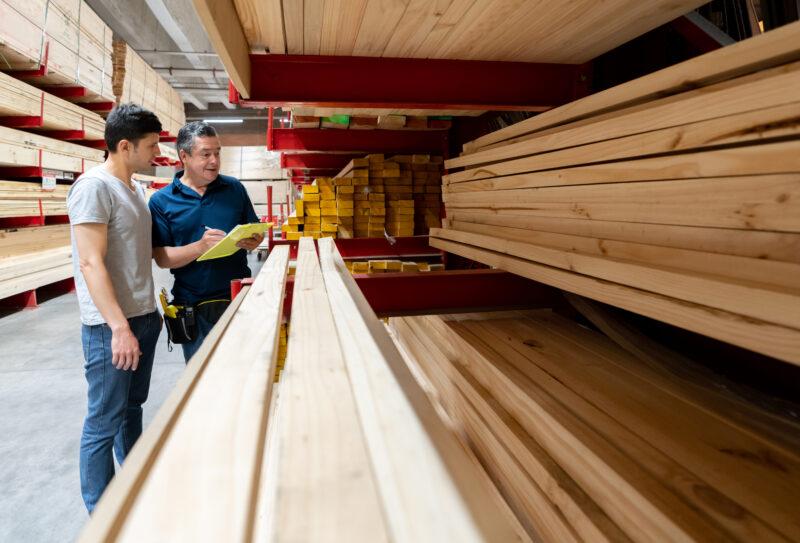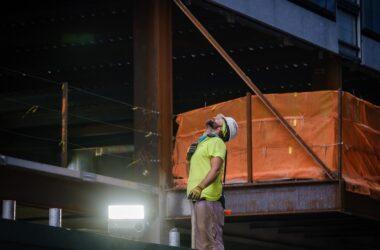The construction industry is a relationship-based industry which means a strong, positive buyer-supplier relationship is an essential part of construction procurement. The exchange of goods and services fuels the engine of the industry and so relationships between buyers and suppliers have the power to shape the success and sustainability of businesses both big and small.
In this post, we aim to provide valuable insights and practical strategies to foster positive, long-lasting partnerships.
Clear Communications and Expectations in Buyer-Supplier Relationships
Establishing clear and open lines of communication from the outset sets the foundation for a strong relationship between buyer and supplier. This can include regular updates on project progress, changes, and challenges alongside being honest about expectations, capabilities, and potential issues.
It’s also essential to set clear expectations. Define project objectives, requirements, and timelines clearly in contracts, as well as agreeing payment terms, quality standards, and deliverables. It’s useful to ensure both parties have a shared understanding of project goals.
Trust and Reliability in the Construction Industry
Reliability from both buyer and supplier helps to build trust on each side. Consistently delivering on promises is a great way to build a strong relationship, ultimately leading to long-term partnerships.
When suppliers consistently meet deadlines, maintain product quality, and provide reliable services, it builds a sense of confidence and reliability among buyers.
This process is enhanced by transparent communication, sharing information, and collaborative problem-solving. Suppliers who openly share information about their processes, capabilities, and potential challenges create an environment of transparency that fosters trust.
Working actively together to resolve issues and mitigate risks demonstrates commitment to the partnership, allowing buyers and suppliers to navigate the complex terrain of construction projects with confidence and success.
Value-Added Collaboration in Buyer-Supplier Relationships within Construction
Value-added collaboration forms strong-buyer supplier relationships in the construction industry. It goes beyond the exchange of goods and services, transforming the partnership into a force for innovation and efficiency.
Collaborating on projects allows both parties to tap into their collective expertise, fostering an environment where joint value creation becomes the norm. In these partnerships, innovation thrives, leading to new solutions, cost-saving ideas, and improved processes.
It’s through value added collaboration that construction projects evolve from routine transactions into mutually enriching experiences that drive progress and excellence in the industry.
Conflict Resolution for Buyer-Supplier Relationships in the Construction Industry
Establish clear and fair mechanisms for resolving disputes. Given the complexity of construction projects, conflicts are an unfortunate inevitability at times.
The key is to approach these disputes proactively and constructively. Aiming for a swift and fair resolution can prevent the escalation of disputes and can reinforce trust and collaboration.
Effective conflict resolution in construction often involves open communication, a willingness to listen to all parties, and a focus on finding mutually beneficial solutions.
It’s important to try and ensure conflicts do not harm the overall relationship, and mediation or third-party assistance should be used when necessary. By addressing conflicts promptly and professionally, buyer and suppliers can strengthen their partnership and continue working together productively to achieve their common goals.
Performance Metrics & Key Performance Indicators (KPIs) for Buyer-Supplier Relationships
Define KPIs and metrics to evaluate supplier performance, then regularly review performance against these metrics. These will play a key role in ensuring the success of buyer-supplier relationships in the construction industry.
Metrics can provide a structured framework for evaluating supplier performance, helping both parties assess adherence to project goals and standards. Whether it’s tracking on-time deliveries, assessing product quality, or monitoring safety records, KPIs offer objective measures of performance.
Regularly assessing and reviewing these metrics enables data-driven decision-making and ensures both buyers and suppliers are aligned in their commitments. Using data-driven insights for continuous improvement can also enhance buyer-supplier relationships.
Long Term Vision for Construction Industry Partnerships
Embracing a long-term perspective in buyer-supplier relationships within construction offers numerous advantages. While short-term gains may be tempting, it’s crucial not to let them compromise the broader, long-term goals of the partnership.
A long-term view allows both parties to invest in mutual growth and sustainability, fostering trust and commitment. It encourages a mindset of adaptation and flexibility, enabling the partnership to weather challenges and evolve with changing circumstances.
By recognising that the construction landscape is dynamic and ever-evolving, a long-term perspective facilitates strategic planning, innovative problem-solving, and a shared commitment to achieving overarching objectives.
Foster a long-term perspective in your relationship, beyond individual projects. Collaborate on sustainability initiatives and align with each other’s goals. Build trust and commitment to grow together in the industry. Partnerships may not be of everyday use but ones you have to form in local areas, ready for work that may form or has previously formed in that area, which may not be your typical area of projects.
Solidifying & Enhancing Buyer-Supplier Relationships with The Build Chain
By implementing these strategies, construction companies can foster strong, mutually beneficial relationships with their suppliers. These relationships contribute to smoother project execution, cost control, quality assurance, and the overall success of construction endeavours.
We created The Build Chain to enhance the buyer-supplier relationship within the construction in industry. With features like our in-platform live chat, buyers can communicate their requirements clearly, and suppliers can respond promptly, fostering better communication and understanding.
Meanwhile, real-time access to project data and performance metrics allows both parties to make informed decisions, promoting transparency and trust.
Because The Build Chain automates routine tasks, the platform frees up time for more strategic and value-added activities, allowing buyers and suppliers to focus on collaboration, innovation, and joint problem-solving.
Try it for yourself and book a demo today!





